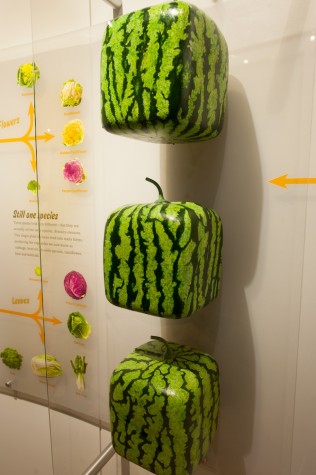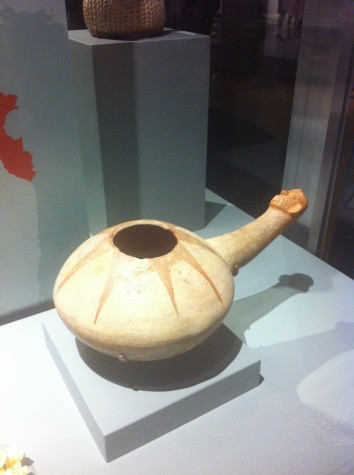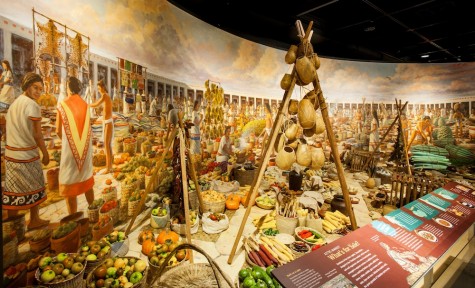So what better way to feel New York-y than to go to the august American Museum of Natural History? You know, the one with all the taxidermy.
I went to the preview for the new exhibit Our Global Kitchen. It opens today, November 17, and runs through August 11, 2013. (I shouldn’t tell you that far-off end date–it’ll make you feel less urgency, and then you’ll wind up missing it. This happens to me all the time.)
In short: You should go. It’s fun, and you’ll learn something. And, since it’s the AMNH, the dioramas and models are great.

The details: This is a really ambitious exhibit. Where to begin when you want to cover what the whole world eats, three times a day? Oh, and it’ll cover the food-supply chain as well.
As a result, it feels a little compressed, a little rushed–each section of the show could easily be expanded into its own exhibit. Then again, I spend an awful lot of time thinking about global food, and food production, so maybe it’s a perfectly good introduction to the issues and to non-American cuisine–which everyone should get.

To my taste, the food-industry section, which starts the exhibit, could’ve taken a stronger “It’s time to change this!” stance. And certainly the curators’ comments before the show were more in this vein–the word “unsustainable” came up a lot.
But there’s some progress. This same exhibit 30 years ago would’ve been sponsored by ADM and Cargill, and had a thoroughly gee-whiz-technology-is-great tone. At least now we get the cons of fish farming listed alongside the pros.

After all the supply-chain stuff, the rest of the exhibit feels a lot more colorful and fun. There’s a fancy show kitchen, where you can eat actual food, and there’s a mirror where you can stick out your tongue and see how many tastebuds you have. There are buttons to push to smell things, and touchscreens to learn about banana transport. You can post your food pics to Instagram with the tag #CelebrateFood, and they’ll show up on screens in the exhibit.
But the meat of the exhibit is still the actual physical stuff. There’s a whole wall of cookbooks from around the world. There’s a vaguely obscene-looking Mesoamerican popcorn popper, and beautiful molds for Korean rice cakes.

And there’s a vivid diorama of a just-before-Cortes-landed market in Mexico.

I also loved the set rooms and meals from different places and times in history: a Roman empress’s breakfast, Kublai Khan’s buffet on the hoof…
In the same room, the juxtaposition of Gandhi’s typical breakfast with Michael Phelps’s is fascinating. It struck me as the stealth message of the exhibit. If Americans learned to eat more foods from elsewhere–more vegetarian staples, more flavor and spices–we might all put a lot less stress on the world’s food systems.
And definitely settle in for the second big video presentation, at the end–all about celebrations and special foods from around the world.
I’m glad such an august institution as the American Museum of Natural History has taken on such a huge and meaningful subject as food. And I hope it sparks some thoughts in people who haven’t thought so much about food yet. There’s a lot more to taste out there…
Ooh! Thank you for this. I probably would have missed it!
I could stare at those little farm models all day, too. So cool. In fact, I probably could spend all day in this exhibit. Thank you for sharing it.